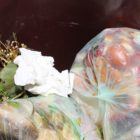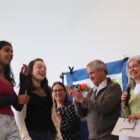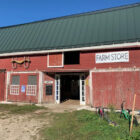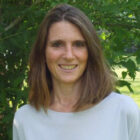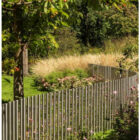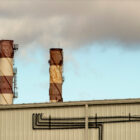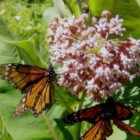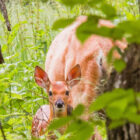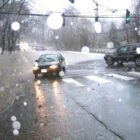
This is the second article in the Greenwich Sustainability Committee’s “One Water” weekly series. Written by Sarah Coccaro, Conservation Resource Manager, Greenwich Conservation Commission, member of the Land and Water sector of the Sustainability Committee
The seasonality of the Northeast is central to the region’s sense of place. Yet, earlier springs and milder winters are changing ecosystems and environments in ways that adversely impact commerce, recreation, tourism, agriculture, industry and livelihoods. Global warming alters nearly every stage of the water cycle; from precipitation, evaporation, surface runoff to stream flow. These changes put pressure on drinking water supplies, food production, property values, and our quality of life. Continue Reading →
